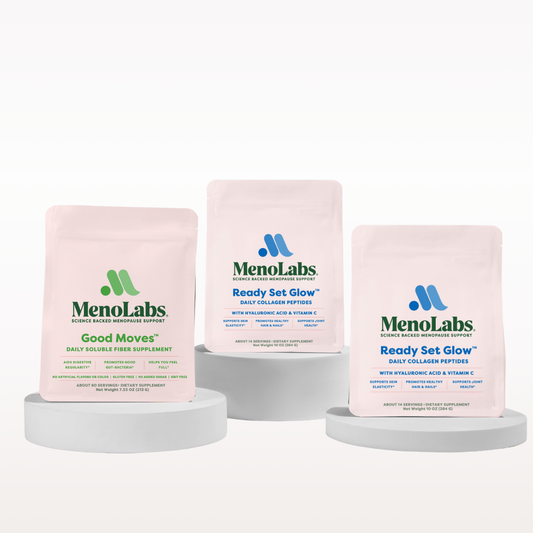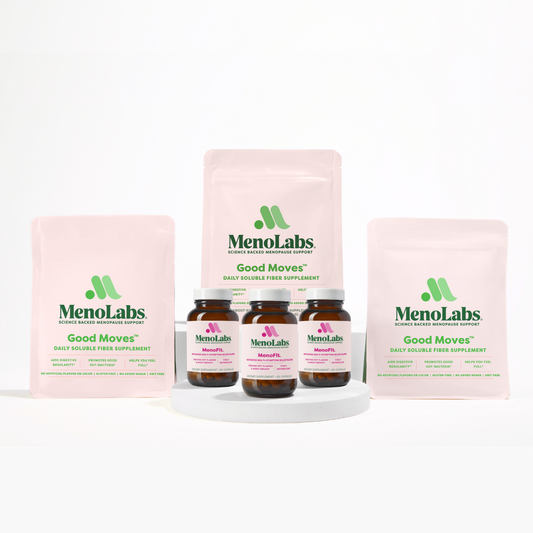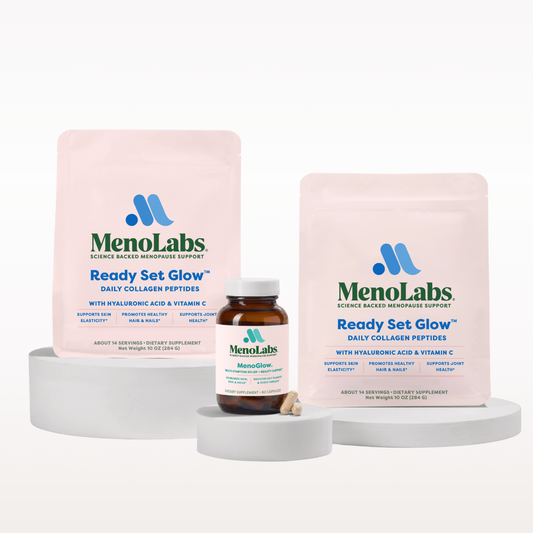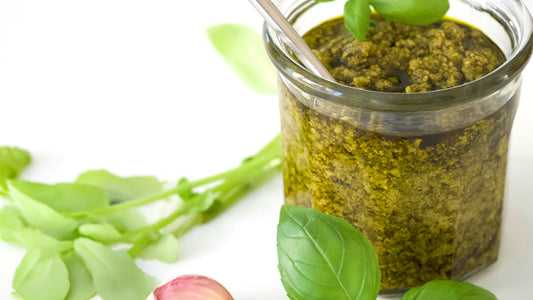
- Health
- Symptom Relief
- Weight Loss
Step-by-Step Guide to Menopause Symptom Relief
For some women, finding relief from mild or moderate menopause symptoms is as easy as taking the initiative to make healthier choices. However, efficacy relies on consistently choosing healthy practices...
1 min read
Your lifestyle has a huge impact on your menopause symptoms. Of course, you should always talk to your doctor about possible courses for treating severe menopause symptoms, but for some women, finding relief from mild or moderate symptoms is as easy as taking the initiative to make healthier choices. But while this can be helpful, it's definitely not a quick fix for the short term. The efficacy relies on consistently choosing healthy practices that support your body as it goes through this transitional phase.
5 Steps for Menopause Symptom Relief
Step 1 – Eat Healthier
Proper nutrition is a foundation of good health. During menopause, your body needs fuel to deal with its changing environment, but it needs the right fuel.
First, make sure that you do not skip meals, and eat at least three times a day. Eating during the day is vital to keep blood sugar levels stable, so add some nutritious snacks between breakfast and lunch and between lunch and dinner. Second, know the macros in your food. For menopause symptom relief, have a balance of healthy fats, complex carbs, and lean proteins at each meal.

Finally, make sure to eat a lot of fruit and veggies. If you feel like you are not getting enough micronutrients from food, take a supplement. Some supplements to consider include vitamin B-complex, vitamin D, vitamin E, calcium, and mineral complex.
Step 2 – Move More
Regular exercise can alleviate various menopause symptoms. Studies show moderate exercising can reduce hot flashes, improve mental health, and alleviate sleeplessness. Try walking, yoga, biking, running, swimming, or doing team sports to find relief from your symptoms and improve your overall well being. Exercise can also help you combat the tiredness you might feel in menopause, as it supports your adrenal function.
Step 3 – Avoid Symptom Triggers
Throughout perimenopause and menopause, it's imperative that you pay attention to the activities and environments that correlate with experiencing symptoms. Common menopause symptom triggers include alcohol, stress, dehydration, and hot or spicy foods. As you begin to recognize which triggers affect you, adjust your life to avoid them as much as possible.
Step 4 – Relax
You know that stress is harmful at any stage in life. But if you are in menopause, you should avoid it even more, as it can worsen your symptoms. Stress can throw your hormones out of balance, leading to brain fog and mood swings, hot flashes, and lack of libido. One study found that women who experience more symptoms both in frequency and severity suffer from more stress in their daily life compared to other women.

Find the time to rest and recharge, or practice relaxation by doing yoga, breathing exercises, and meditating. Take some time for yourself among the busy tasks of your day and find menopause symptom relief.
Step 5 – Be Positive
Your thoughts have a significant impact on your mood and your health in general. If you feel run down because of your symptoms, start a diary that you can share with your doctor. Documentation can help you find out the patterns in your emotions that impact your symptoms. Be positive when you wake up and keep this attitude during the day to feel better and be happier.
Related Products
Blend Besties Bundle
Fresh Start Bundle
4.7 / 5.0
(553) 553 total reviews











